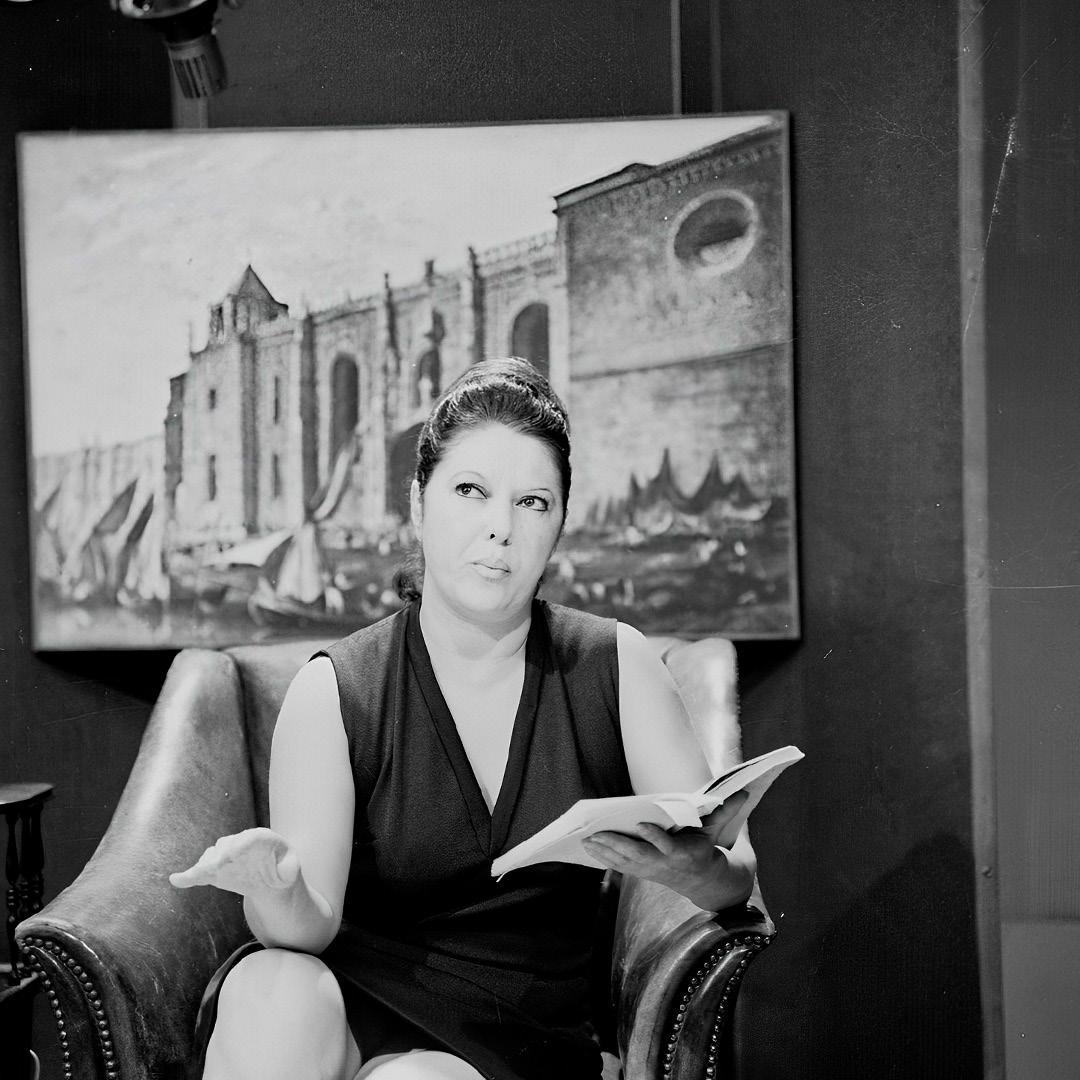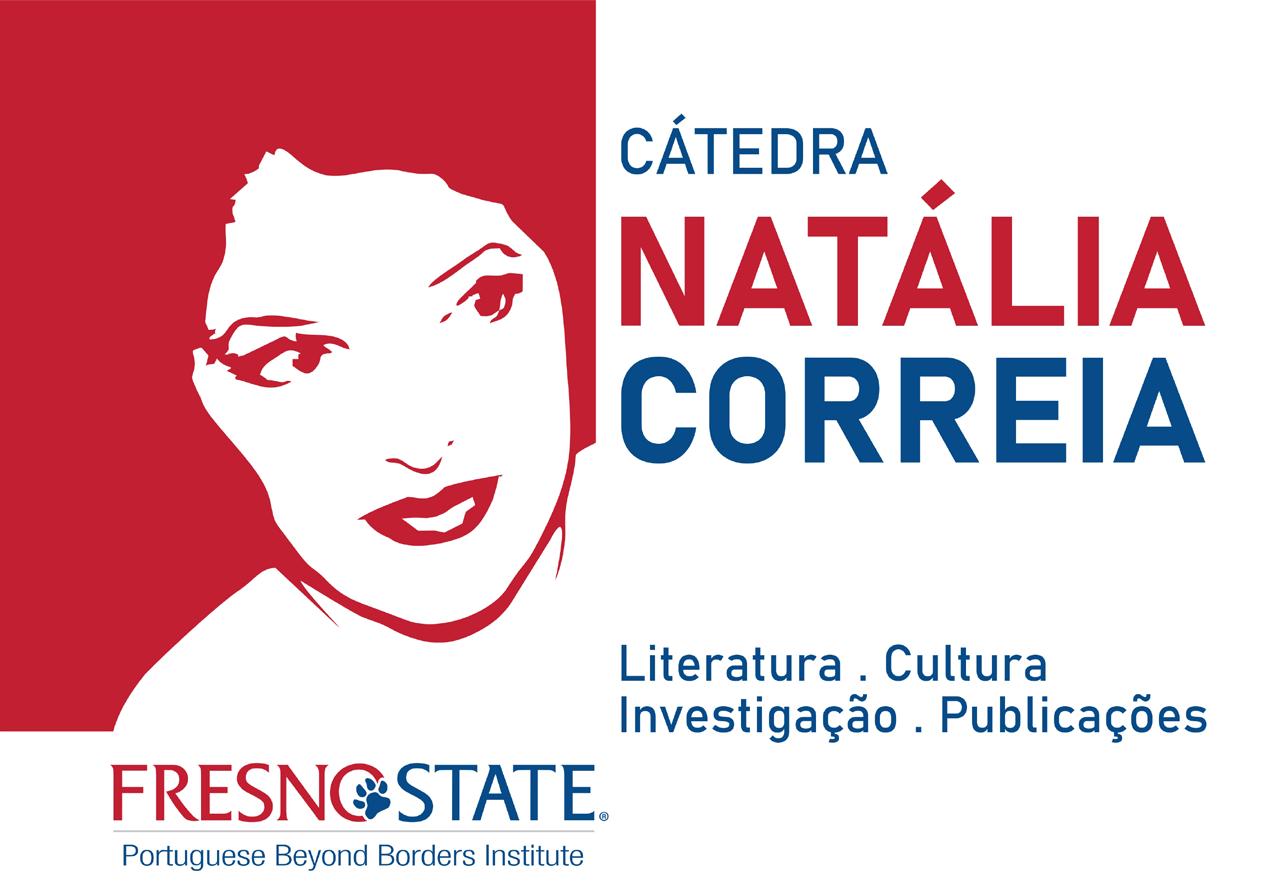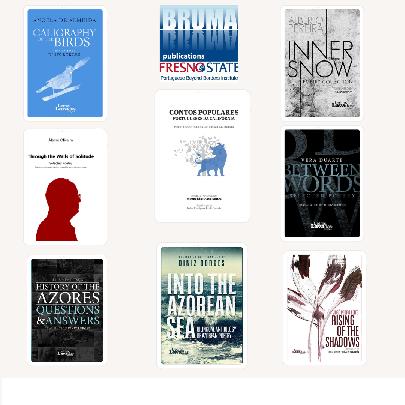
4 minute read
The Poet and the Word
Natália Correia
Translated by Diniz Borges
Advertisement
“The lyricism of computers”
Among the formulations with which pessimistic critics problematize the dehumanizing symptoms of modern technologization is the vision of a world where there is no place for the old spiritual standards. Poetry is even denied its existence in this technologized universe where the lyricism of computers makes human creation dispensable.
Those anguished by the apocalypse of literary culture see in this takeover of poetry by the machine the sign that the times are coming when man will add to his aridity of being massified the astonishment of a deserted people: the withering away of that human content engendered by the intensities of sensitive consciousness that explodes man’s poetic gesture.
This pessimistic conception of the friendship between technology and humankind is dominated by the academic concept of history produced by the past, which understands the spirit as a structure formed by the two categories of time facing man: the past and the present. Humankind is thus accepted as a being panicked by the dark zone of the future, experiencing the dread of moving towards a history that is not his own. This change has triggered and paradoxically appears to him as the dehumanization of his universe elaborated by a bygone time.
On the one hand, the antipathy summoned up by technocratic idealism stems from the proud self-absorption of this mental attitude, which can impose itself without considering an imperative that is the final judgment of all ideologies. We are referring to the existential question. Only focusing on this core of human concerns can allow technocratic idealism to proceed without the unease and anguish of those who see technology as an exhaustive plundering of man’s spiritual prerogatives.
To overcome this pessimism, which is the result of humankind feeling philosophically helpless in the face of change, the technical revolution must integrate reflections that include an evaluation of the spirit rooted in the temporality of existence: existence taken not only as a lived reality but as a living reality, a continuous creation that is so because it contains the future. Faced with this notion of humankind as an indefinite creation of himself, as a constant modification and not as a modified being, the shock of dehumanization and the anguish of strangeness fade away because if the temporality of man’s existence encompasses the future, he cannot live a history that is not his own.
So, on the other hand, in a more in-depth analysis of the issue, the responsibility for the antagonism between culture and technology lies with culture, whose skeletons, fixed to a concept of spiritual creation that has its raison d’être in the time lived and not in the time to be lived contained in the temporality of existence, reject technical novelty, itself a work of culture that does not accompany humankind continuous reinvention of itself.
It is in this impact that technology has on the circle of culture that the discouraging question of the “lyric of computers” arises. Let’s find out to what extent the reasons that discourage the man-poet in the face of competition from the machine-poet are solid or relevant. To do this, we start from the point of view of poetic consumption since it is a valid argument for valuing the machine poet, whose compositions satisfy many readers.
Suppose it is from the reader that poetry is concretely built up as communication as long as the text produced by the machine is identified as poetry. In that case, the computer replaces the human poet for consumption. But the consumption of poetry, particularly in its most contiguous circle to poetic creation, presupposes more than an aesthetic education, a subjectivity in the consumer, and this requires unexpected information about the rules of the poetic game that the machine is also capable of. As a reproducer of poetry, based on accumulated information, the computer is the image of the poet of art, which is why the perpetual and renewed impulse of existence to signify the essence that it is as existence organizes the need for this diction of the sympathy of being in the world for its “being,” which we call poetry. Language, therefore, is elaborated by sensitive knowledge and, as such, irreproducible. In other words, a poem can only be made once. This is the genetic, vital, and human charge of poetry that gives it the authority that is the very phenomenon of authorship. But it can be limited. And here, it slips into literature, and it becomes an example. It becomes the past, and it determines consumption. Poetry is, therefore, in life and not literature, which is the history of poetry. Based on this principle, the poetic efficiency of the machine only calls into question the literature of the poetry that informs it, laying bare the distance between creation and production, between language elaborated by human time, by the simultaneous and instantaneous profusion of the spirit and the semantics of a culture that is the body of ideas of lived time and not of living time.
It seems conclusive to us that the machine comes, with innocence, to put things in their proper place, discrediting the imitator but not the creator, reintegrating poetry into its old pre-literary nature that only affirms whenever the poem is made for the first time, having as its substance information that flows from human time and not from the code of poetic culture.
Instead of lapsing into anti-technical pessimism in the face of poetic competition from “computer lyricism,” we should see as inevitable a new evaluation of poetry that defines what else is not literature, what is not yet reducible to the rationality of the machine and which, being in life, will only be extinguished when life is extinguished
The declaration of the poem’s intention in the title indicates that the poet modeled it on an element that he took from the topical. The dramatic spontaneity of the poem, with its sparkling results of unusual verbal encounters, indicates that the poet gave himself over to the uncontrolled energy of the unsuffering of his experiences, later proceeding as his spectator and critic. In this instance, the poet designates the poem’s meaning, placing it under the literary sign of a topic that has always served as a weapon to tackle the insidious embarrassments created by acts that surprise unity under the fierce parallelisms that diversify it.
Natália Correia wrote a series of articles in 1968 and 1969 titled The Poet and the World for the newspaper Diário de Notícias









